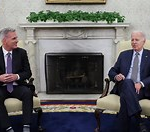
Jaishankar highlights the need for equilibrium and mutual respect in India-China relationship
India’s External Affairs Minister, S. Jaishankar, has acknowledged the “very complicated challenge” that India faces from China in the ongoing border dispute. Speaking at a talk titled “Modi’s India: A Rising Power” at Anant National University, Jaishankar emphasized the importance of finding an equilibrium in the relationship between the two Asian giants.
Jaishankar acknowledged that the challenge posed by China has been particularly visible in the border areas over the past three years, alluding to China’s incursions in eastern Ladakh. He underlined that the Indian government, under Prime Minister Narendra Modi, has taken steps to ensure that no attempts are made to unilaterally change the status quo in the border areas.
While addressing the issue, Jaishankar emphasized the need for a balanced relationship based on mutual respect, sensitivity, and interest. He highlighted that a long-term relationship between the two countries is only possible if both parties respect each other’s concerns and interests.
The External Affairs Minister pointed out that past governments in India have attempted to find a balance with China, but it cannot be on the terms of the other party. He stressed that mutual respect and sensitivity should be the foundation of the relationship. He further added that if India sees respect, sensitivity, and recognition from China, it can envisage a better relationship.
However, if those elements are lacking, Jaishankar stated that India will assert its opposition and stand up for its rights. He emphasized the importance of asserting India’s interests firmly when necessary.
Jaishankar also spoke about India’s efforts to strengthen relationships with its neighboring countries, both immediate and extended. He highlighted the significant progress made in expanding connectivity and cooperation with countries such as Bangladesh, Nepal, and Bhutan through roads, railways, waterways, and electricity grid connections.
In addition to regional collaborations, the External Affairs Minister highlighted India’s engagement with countries beyond the immediate neighborhood. He mentioned interactions with the Quad countries (Australia, Japan, and the United States) regarding maritime collaboration, infrastructure connectivity, 5G technology, and vaccine distribution. India’s engagement with countries in the West, including Israel, the United States, and the United Arab Emirates, was also emphasized.
Jaishankar noted that the current government, under Prime Minister Modi, is thinking beyond the short term, aiming to establish a global footprint for India. He highlighted the rise of India as a significant development in the world, with its growth being compared only to that of China.
In conclusion, External Affairs Minister Jaishankar’s remarks shed light on the complex challenge India faces from China in the ongoing border dispute. He emphasized the need for mutual respect, sensitivity, and recognition to achieve an equilibrium in the relationship between the two nations. India’s efforts to strengthen regional ties and establish a global presence were also highlighted as key priorities for the government.






